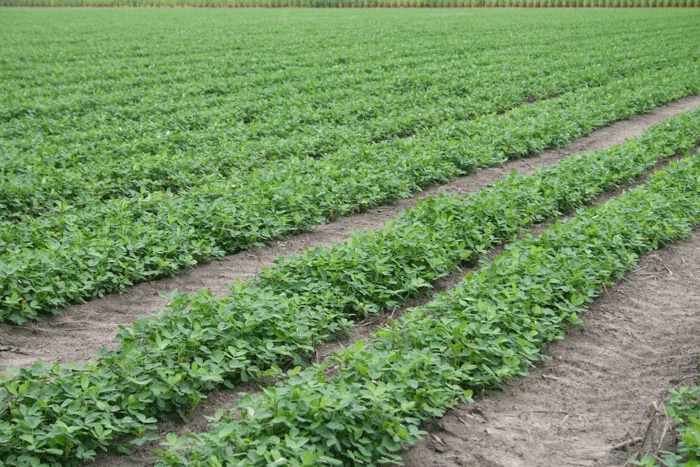December 13, 2011

With 2011 delivery prices hovering around $1,000 a ton, expect an increase in Arkansas’ peanut acreage for 2012.
Prices for peanuts soared on declining production in the major peanut states. The National Agricultural Statistics Service last month estimated total 2011 peanut production at 3.65 billion pounds, down from 4.15 billion in 2010. Georgia was the nation’s peanut leader in 2011 with 470,000 acres. Other major producers are Alabama, Florida, Texas, North Carolina, Mississippi, Virginia, Oklahoma, New Mexico and South Carolina.
By contrast, there were approximately 4,000 acres of peanuts grown in Arkansas in 2011, about four times the 2010 acreage. The peanuts were concentrated in Lawrence, Clay and Randolph counties with a smaller acreage – about 600 – in Phillips County.
Mike Andrews, Randolph County Extension staff chair for the University of Arkansas Division of Agriculture, said his county had about 1,275 acres of peanuts.“We had eight to 10 growers and I think most will grow peanuts next year if the economics are there. I have visited with several other farmers that say they will also grow peanuts next year as long as the price holds and the spring will allow for planting.”
Several peanut processors, including the Clint Williams Co. of Madill, Okla., have made forays into Arkansas to encourage growers. The company’s biggest domestic buyer is M&Ms maker Mars, with other major candy makers among its customers.
“We already have farmers signing contracts for next year, including some who didn’t grow peanuts this year,” said Chris Elkins, Arkansas development manager for Clint Williams. “We have some who will be buying harvesting equipment. They think this will be a crop that will really work for them.”
In Lawrence County, where there were some 2,000 acres of peanuts, Herb Ginn, Extension staff chair, said that even after the first snow fell: “I still have companies calling looking for growers.”
Arkansas’ peanut past
Peanut acres used to be more plentiful in Arkansas. In 1909, the earliest year that NASS has figures for peanuts in Arkansas, showed 10,000 acres planted and 6,000 acres harvested. Records continue in consecutive years until 1959, when 4,000 acres were planted, 3,000 harvested, including 2,000 acres used as hay. The next year for which NASS recorded numbers for peanuts in Arkansas is 1997; followed by 2002 and 2007, all part of the Census of Agriculture.
“We’re just trying to bring them back,” Elkins said. “We hope they can be grown here and with all our efforts out here, we can provide the world’s growing need” for peanuts.
With drought keeping an iron grip on what was established peanut-growing country in Texas and Oklahoma, more plentiful water and good soil made Arkansas very attractive. However, it was the plentiful water that made the 2011 crop a little tougher for Arkansas peanut growers, along with their cotton- and rice-growing counterparts.
“The flood in the spring did delay planting which made harvest run a little late this fall,” Andrews said.
“As with other crops, it has been a very tough year for peanut growers,” Ginn said. “Weed pressure due to unfavorable conditions for residual herbicides, replanting, late planting and other problems provided ample challenges for producers.”
However, the challenges paid off, Elkins said. “We had historically high prices for the crop this year. When we contracted with growers in the spring, we were contracting at $650 a ton, with an escalator clause that if the others went up, we would too.”
When harvest came, “most of them were delivering at $1,000 a ton,” Elkins said. That was more than double the 2010 delivery price of $400 a ton.
Building support
With the surge in interest, comes an increase in support for growers.
The enthusiasm among producers in the Natural State for peanuts is prompting Clint Williams to establish a buying point in Arkansas to accept, grade, dry and store local deliveries.
Meanwhile, Andrews and Ginn were planning a peanut production meeting Jan. 19 at the Black River Technical College auditorium in Pocahontas. The program will include Mike Howell, Mississippi State peanut specialist, and Scott Monfort, former University of Arkansas plant pathologist who is now peanut specialist at Clemson.
For more information on crop production, contact your county Extension office or visit www.uaex.edu.
You May Also Like




